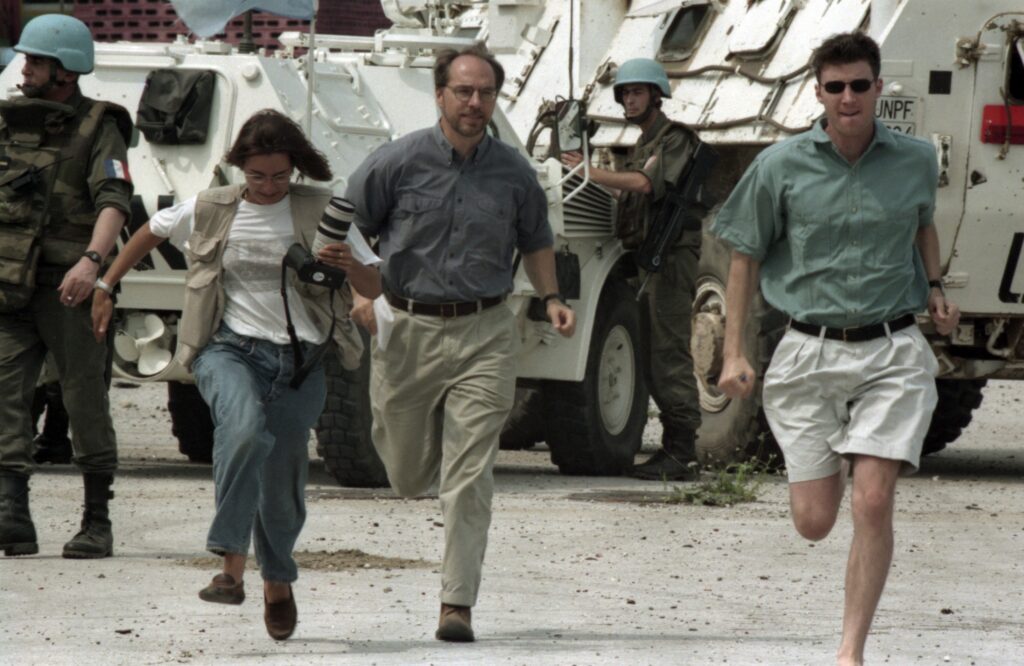
For 13 years, we have proudly supported and hosted the Kurt Schork Awards in International Journalism, as part of our global work to advance media freedom and strengthen the independent media ecosystem. These annual Awards are open to freelance journalists, local reporters and news fixers from around the world, and recognise excellence in courageous reporting of conflict, corruption, injustice and human rights transgressions.
Now in their 22nd year, the Awards honour American freelance journalist Kurt Schork – who was killed in 2000 while on assignment for Reuters in Sierra Leone.
Since they were established in 2001, 50 brave reporters have received this prestigious honour. Our winners come from across the globe, and their inspiring stories demonstrate the courage it takes to shine a light on the truth and hold power to account – from reporting on the criminal justice system in Nigeria to uncovering the human cost of war in Afghanistan.
Hear from a past winner
In the interview below, 2019 Freelance Award winner Amanda Sperber talks about her motivations for becoming a foreign correspondent, her insights on covering under-reported issues and the impact of winning the Kurt Schork Award.
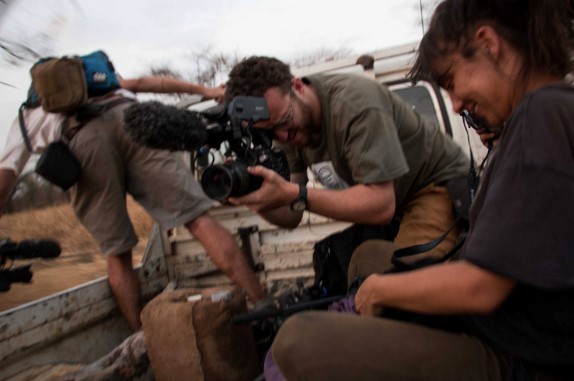
What motivated you to become a foreign correspondent?
To start, I was motivated by an interest in travel, new experiences and broadening my perspective by getting to know people and places that are, at least on the surface, different to where I’m from. And I think at the end of the day, that’s still what motivates me. Journalism is a way to plumb the depths of what it’s like to exist on this crazy planet as a human, and I believe there’s a lot of value in attempting to articulate that for the record.
More concretely, however, as I got into the profession, I became motivated to highlight injustice and hold the powerful to account. There’s a lot that’s wrong with the profession of the “foreign correspondent” with its history of colonialism, but something foreign correspondents can do is report on issues that people in their countries often cannot because they would be targeted, jailed or worse. So, I try to think of how I can leverage my value as an outsider. Some of the more sensitive issues I’ve reported on include geo-politics, state-building and airstrikes in Somalia, police brutality in Kenya and sexualised violence in South Sudan’s civil war by government and opposition forces.
There’s a quote that says, “The job of the newspaper is to comfort the afflicted and afflict the comfortable,” – I’m not sure where that quote is from but since I’ve heard it that’s been my true north.
How do you go about finding under-reported stories? And how do you stay safe in the field?
The best way to find under-reported issues, usually, is to go to a place and spend time there and then keep talking to people. Often, I’m sent to a country on an assignment that’s pretty straightforward and I leave with dozens of ideas and contacts that I wouldn’t have gotten had I never been. Then when I’m back home, if people I’ve met have time, I’ll continue the conversations I’ve started, usually over WhatsApp and Signal. You really can’t do this job without so many people being extremely generous with their time and willing to walk you through events.
In terms of safety, I usually speak to other reporters – both those from the place I’m working and other correspondents. Staying in touch with people, actively having conversations and getting as much real-time information about what’s happening where you are is really the best advice I can give. For example, many years ago, I worked in what was a rebel-controlled territory of Sudan, in the Nuba Mountains and Blue Nile, where at the time, the Sudanese military was carrying out an indiscriminate air campaign. The best way to know what to do when the bomber jets were flying was to follow the directions of the people who lived there.
To date, what’s your proudest reporting moment?
In 2021, the family member of a woman killed in an airstrike in Somalia sent me a long email. I’m not sure if I can say I was proud to receive the letter, but I can say it was one of the most meaningful moments of my career. AFRICOM, the U.S. Africa Command, carried out an airstrike in April 2018 and killed a 22-year-old woman named Lul Dahir Mohamed and her four-year-old daughter Mariam Shilo Muse. After 14 years of strikes, the U.S. has taken responsibility for a total of four incidents of civilian casualties. I spent three weeks in Somalia in 2021 speaking to family members of the people the U.S. military has admitted to killing. I wanted to know what their experience was like, having a relative killed by one of the most powerful militaries on earth, and knowing they had admitted the mistake. Had they heard from U.S. government or military personally? Had any condolence payments been issued? They had not, in both cases.
The family member who emailed me was not in town, but I met with his relatives. His email expressed his appreciation for my acknowledgment of their experience. He also explained that he had been trying to get the Somali and U.S. governments to assist them. His note was truly heart-breaking and difficult to read, and it meant so much to me. I re-read it at times to ground myself.
How did winning the Kurt Schork Freelance Award help your journalism career?
Winning the Kurt Schork Freelance Award was a real confidence boost and legitimisation that the work I’d been doing was getting noticed. As a freelancer, you’re often working alone, and it can feel very isolating; winning the award was a nice reminder that the work I am doing is important.
Can you share any upcoming projects or stories that you’re excited about?
I am in the very early stages of working on a book! I am still in the proposal mode, so nothing is set in stone, but it’s what I have been devoting much of my time to at the moment, so I hope it works out. It’s been scary but really exciting to conceptualise how to communicate in a new format.
This autumn, I’m also going to be a Visiting Journalism Professor at the State University of New York at New Paltz and that should be interesting as well.”¯
The winners of the 2023 Kurt Schork Awards will be announced later this year. Keep an eye on the Foundation’s Twitter and LinkedIn channels for more details.
More News
View All
Thomson Reuters Foundation and UNESCO partner to launch the AI Governance Disclosure Initiative
The Thomson Reuters Foundation and UNESCO have partnered to launch the AI…
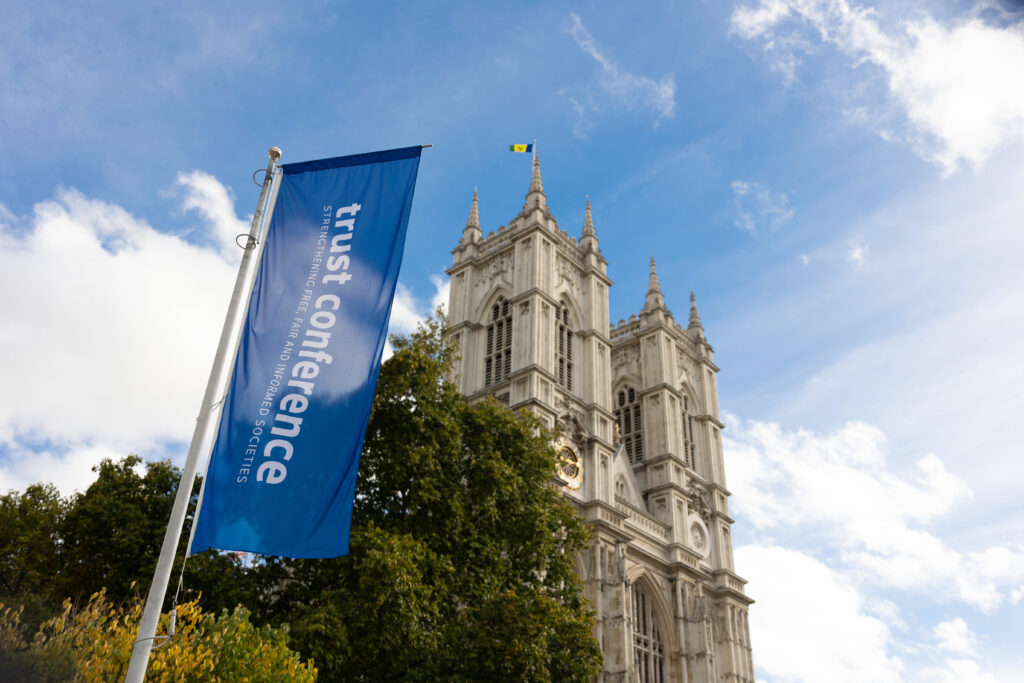
Announcing this year’s line-up for Trust Conference 2024
How do we defend democracy and trust in…

Thomson Reuters Foundation announces winners of the 2023 TrustLaw Awards
The winners of the 2023…
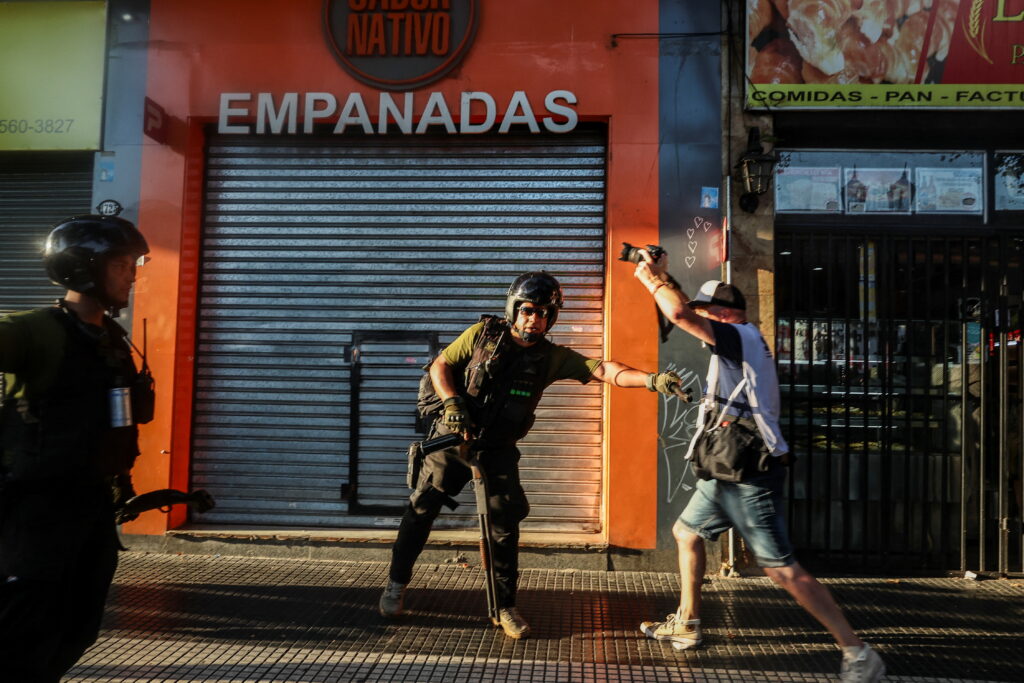
World Press Freedom Day: How the Foundation is giving independent media the tools to thrive
A thriving independent media is a key pillar of any free, fair and informed…
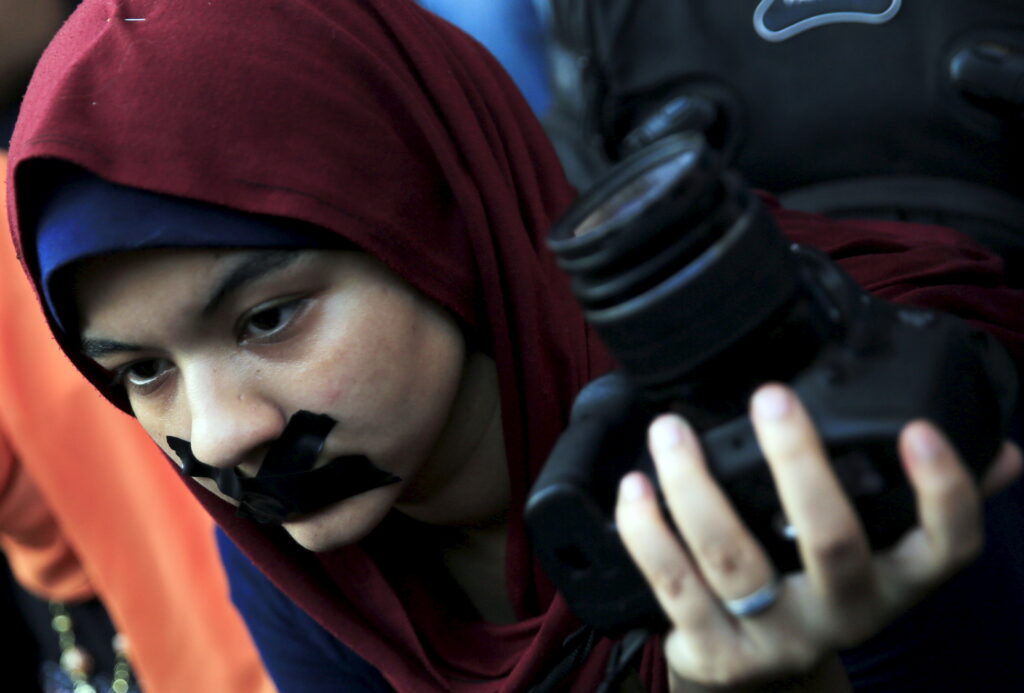
Thomson Reuters Foundation publishes 2023 Annual Report
Against a backdrop of global uncertainty, deepening…

Thomson Reuters Foundation to host leading corporate disclosure initiative on labour and human rights
Focusing on the ‘S’ in ESG, the data includes indicators on labour and workforce…

Reflections on COP28
One of the key debates at this year’s COP28 was the future of fossil fuels, with climate leaders calling for a…

How the Thomson Reuters Foundation promotes human rights around the world
Human Rights Day is an…

Voices from the frontline: A day in the life of an Editor in Ukraine
In this interview, the Chief…
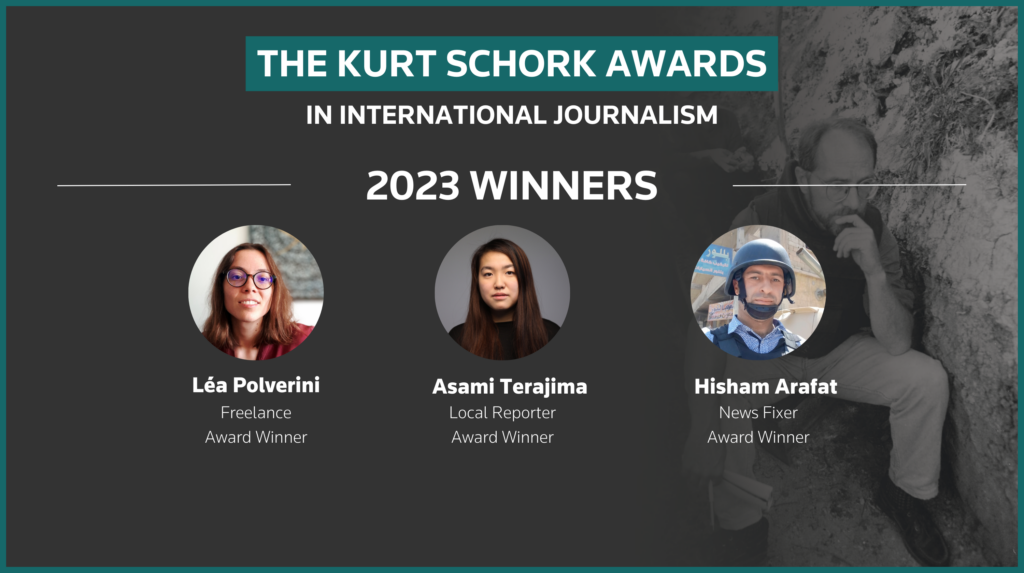
Frontline reporter of Ukraine conflict among winners of the 2023 Kurt Schork Awards in International Journalism
Named in honour of the late American journalist, Kurt Schork, the Awards recognise the…


